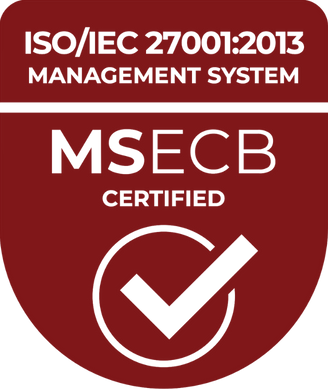Where is your consulting firm on Maslow’s Hierarchy of Needs?
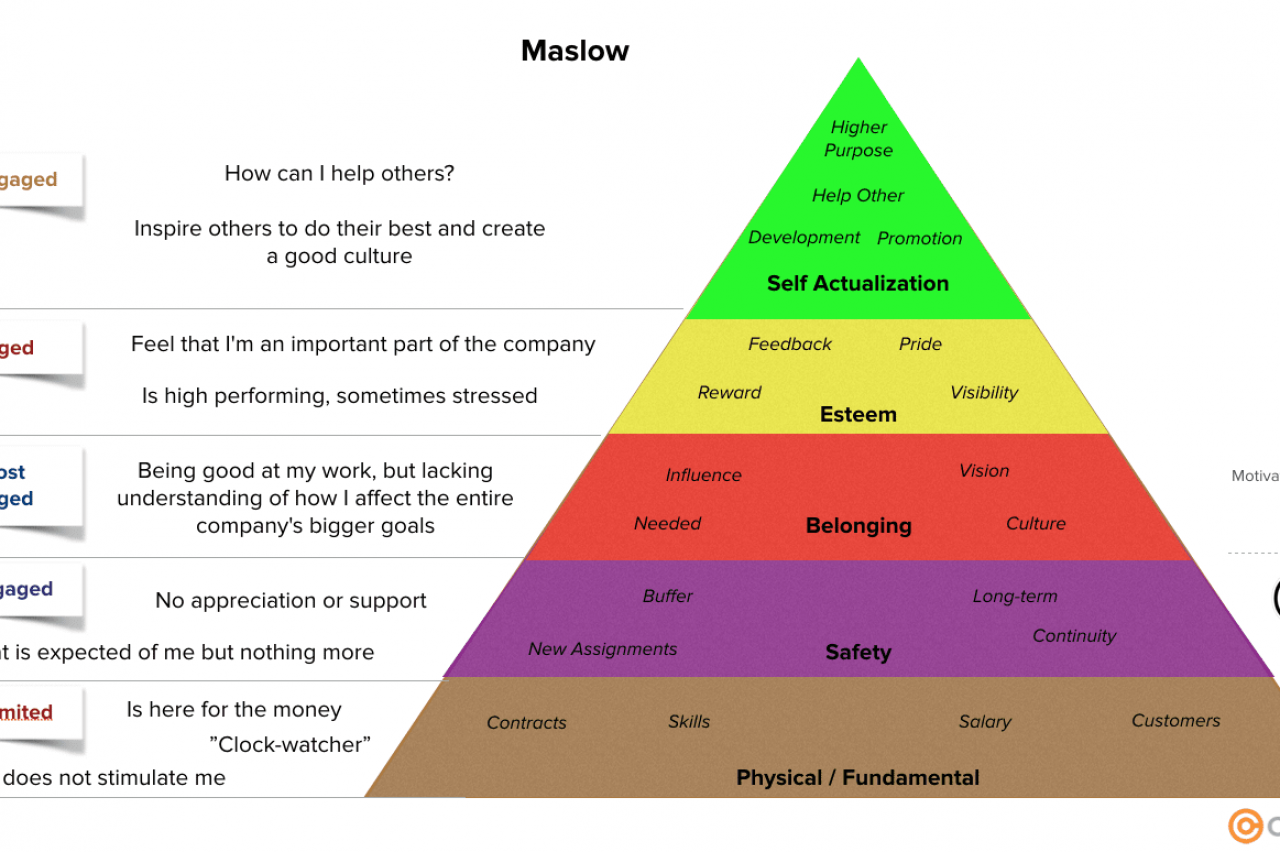
Maslow’s hierarchy of needs is an old theory that explains how we as humans have to meet our needs in a certain order. It is for example difficult to think about love when you are starving. What happens if we apply the same model but from the perspective of a consulting firm’s needs?
Many sectors of the consulting industry suffer from high staff turnover and a constant struggle to find talent. It is hence vital to understand how consulting businesses succeed in becoming attractive employers with motivated and engaged employees. We’ve developed a simple model based on Maslow but applied to consulting firms and in particular to their consultants.
Consultancies that succeed in getting their employees engaged on higher levels in this pyramid are the ones that will have the lowest employee
turnover. They will also be able to grow their business by attracting new talent.
To succeed it’s necessary to have a clear strategy, a vision and to find the essence of why your consulting business exists.
The original model
The hierarchy is most often described like this:
- Our physiological needs (food, water, air…).
- Our safety needs (safety, protection, health and well-being…).
- Our need for love and belonging (social belonging, family…)
- Our need for appreciation (to feel competent, get recognition…)
- Our need for self-actualization (realizing our innate abilities…)
Maslow Applied to Consultant Companies
If we take Maslow’s hierarchy of needs and apply it to consultant companies, what would it look like?
1. Our physiological needs
Basic needs for consulting companies would revolve around what employees know, acquiring clients, a basic working environment and available skills in the company. Work-life balance would also fit in this category. But if you remain on this level your employees won’t stay on for very long.
2. Our safety needs
To feel safe you need to know that you have some operating room, some long-term plans, and continuity in the company. You need to know that you can acquire new clients/assignments if your current clients/assignments disappear. It is also important that employees feel that they can say what they think without reprisals.
Now we have a consulting firm that can survive. But the employees aren’t fully engaged but ready to exchange their time against money. The fight for talent is tough though and many employees will look for work among your competitors or become self-employed. Why should they stay on?
Advice: Nurture an open-minded culture and inform your employees about what is going on within the company.
3. Community
We’re now approaching an interesting level. This level is needed for your consulting business to be able to grow and become attractive.
You need a sense of community in your company, but you also need a strong culture and a common vision. Each employee has to feel like they contribute to the group and that they can share their skills to solve common problems. This can be a challenge given that your consultants often are spread out on different assignments and locations. You want to feel like you make an impact, and you want to feel needed, both by your colleagues and your managers.
Advice: In a consultant company you don’t meet each other as much as in other company structures. This is why it is important that you arrange consultant meet-ups, after works, skills groups, lunch dates etc. It is also important that you are transparent regarding information about the company and make it easy for your employees to meet each other.
When you use Cinode your employees can see where their colleagues are located, what their skills are and if they are on assignment. This makes the sense of community stronger.
4. Appreciation
Are your employees proud of working for your consulting company? Is it something they tell their friends about?
You need a feedback-culture in your consultant company. As an employee you want to feel appreciated for your hard work and get compliments from both your managers and colleagues. It is also important that the company is visible, that there is a positive business momentum, and that you add something unique to the industry.
Employees feel more pride in their work when they know that their efforts are noticed by management. If there is a clear link between responsibility and reward, most people will also raise the bar.
Advice: Be transparent. Show how the company is doing. Show appreciation both in person and in public. Celebrate common victories. Encourage employees to take on new challenges and show that it’s fine to fail, too. Create goals for each employee and break them down into activities. What assignments should be taken on? New roles? What skills are needed? What courses or lectures are worth attending? Follow up on the activities together and show appreciation when an activity is completed.
When you use Cinode you have complete control over your skills (and skill levels), and the skills that your clients are requesting. By benchmarking towards the individuals’ skills you can create relevant goals that benefit both the employee and the company.
5. Self-actualization
Maslow predicted that only two percent of the population had reached the last level of needs. This level is about reaching a higher level of insight while maintaining great empathy for their fellow human beings. People who reach this level enjoy greater independence, have a deeper feeling of humility, and show respect for other people.
Try new things, be creative and make it a key priority to always develop your skills. Make sure your personal development gives you momentum to advance and move forward. Are there new career paths within the company? Is there a higher purpose for your work – social work, financial aid, helping other people or teaching? Or does your consulting business want to change a whole industry? Find out why your consulting firm exists.
Can we get our employees to grow not only in their professional role but also as individuals?
Advice: Do new things together. Do like Google, dedicate one day per month where you work on completely new projects. Go on a trip and do some voluntary work, provide help or support to others, encourage your employees to share their expertise, and create clear career paths.
How does it look in your consulting business?
I’m sure your employees are on different levels, but what does the average look like? Beware that staff at lower levels are more susceptible to quit the team. How can you get more of your staff to climb further up in Maslow’s model of hierarchy applied to consulting firms?
Would you like to hear more about this model and learn from examples of how other firms in the consulting industry work? Don’t hesitate to get in touch for a presentation to your leadership team.

Johan Haeger - Head of Enterprise Sales, Cinode
Johan Haeger - Head of Enterprise Sales, Cinode
You may also like...
All posts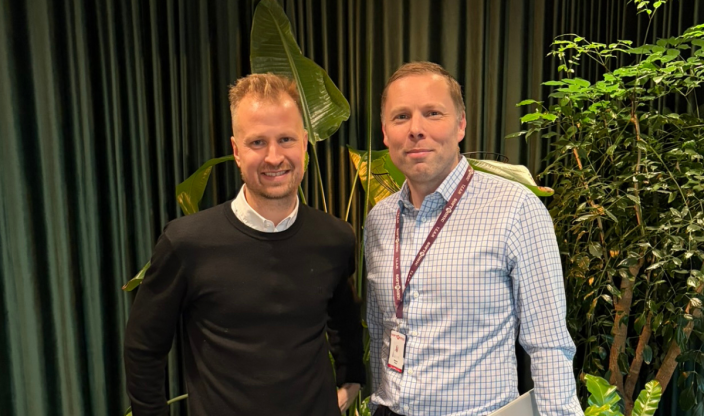
Jan 21 2026 · Consulting
Softronic’s New CEO Mattias Flock: “I Love Creating Things — That’s Why Growth Excites Me”

Dec 18 2025 · Consulting
Santa’s Letter to the Consulting CEO

Dec 15 2025 · Consulting
Building a High-Performing Consulting Firm

Dec 05 2025 · Cinode
⚡ From Incoming Email to the Perfect Consultant in Seconds – How Cinode’s AI Streamlines the Process
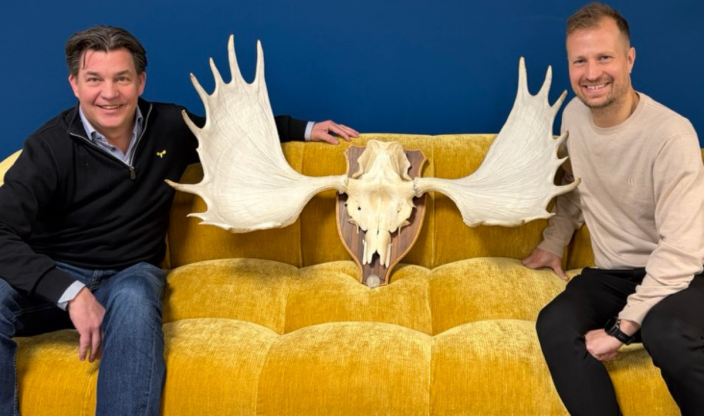
Dec 01 2025 · Consulting
🏆Yellow Elk Sweeps All Three Awards at Konsultkollen 2025

Nov 05 2025 · Cinode
Stay on top of your deals and consultants – directly in Slack or Teams
Oct 24 2025 · Cinode
Use AI to chat directly with Cinode – thanks to MCP (Video)

Oct 10 2025 · Consulting, Entrepreneurship
🚀 The Head of Analysis: Seven Success Factors for Consulting Firms 2025–2030
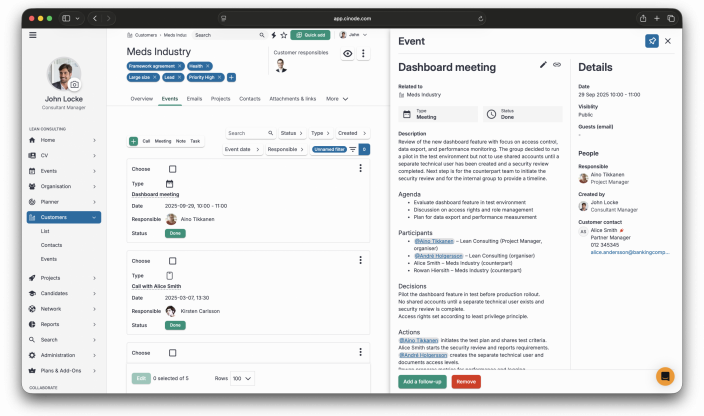
Oct 03 2025 · Cinode
AI Notetaker in Cinode – Meeting Notes on Autopilot
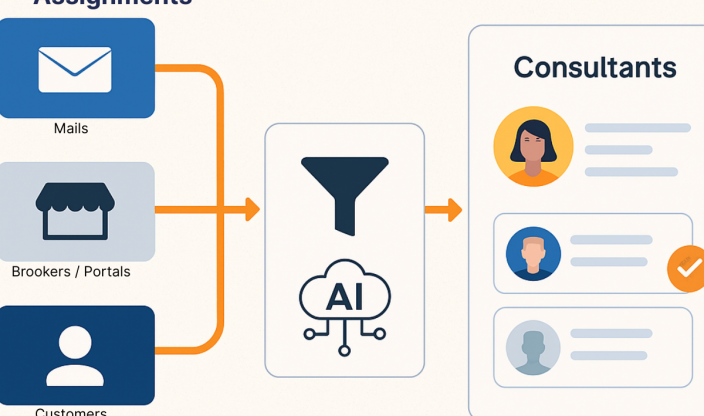
Sep 23 2025 · Cinode
All Public Consulting Assignments – Collected, Filtered, and Matched with Your Consultants

Sep 12 2025 · Cinode
Pipeline Assistant Creates Data-Driven Sales Focus at Frontit
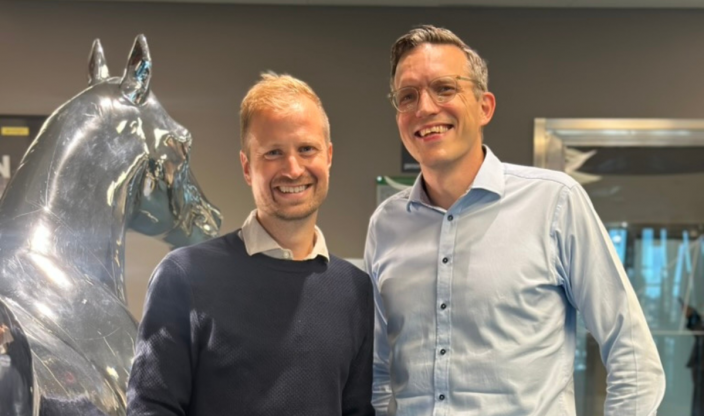
Sep 10 2025 · Consulting
